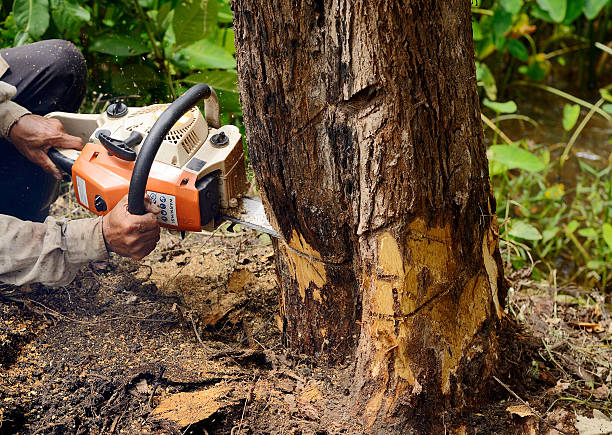All Categories
Featured
The elimination of trees can create open rooms that are susceptible to weed invasion. When trees are present, their dense canopies typically color the ground, restricting the amount of sunlight that reaches the dirt. After the removal of trees, these open areas get boosted sunshine, offering excellent problems for weed growth.

They might recommend the use of compost, which acts as a protective barrier on the soil surface, stopping weed seeds from sprouting and reducing weed growth.

The existence of trees fosters a rich and diverse area of soil germs. Tree roots give a source of raw material, exudates, and nutrients that sustain the development and task of helpful soil bacteria. Nevertheless, when trees are gotten rid of, the absence of their origins can interfere with the delicate balance of the soil's microbial ecosystem.
How Much Should I Pay For Tree Removal Wollongong Area Services?
This change in pH can impact vitamins and mineral accessibility, microbial task, and general soil wellness. To deal with the results of tree cutting on dirt pH, tree removal professionals can provide beneficial recommendations. They may advise dirt screening to evaluate the present pH degrees and identify the needed modifications. Based upon the outcomes, professionals can suggest pH adjustment methods, such as adding lime to raise soil pH or integrating elemental sulfur to decrease it.

It refers to the compression of soil particles, causing reduced pore space and boosted soil thickness. This compaction can adversely affect the soil's capability to operate optimally, impacting its water-holding capacity, nutrition schedule, and root penetration. Appropriate methods used by tree removal experts can aid lessen compaction and maintain the dirt's capability to retain water, and enable ample airflow and mindful equipment handling.
Latest Posts
How Much Does Arborist Wollongong Service Cost?
Should I Hire A Professional Pressure Washing Contractor?
Should I Hire A Professional Pressure Washing Contractor?